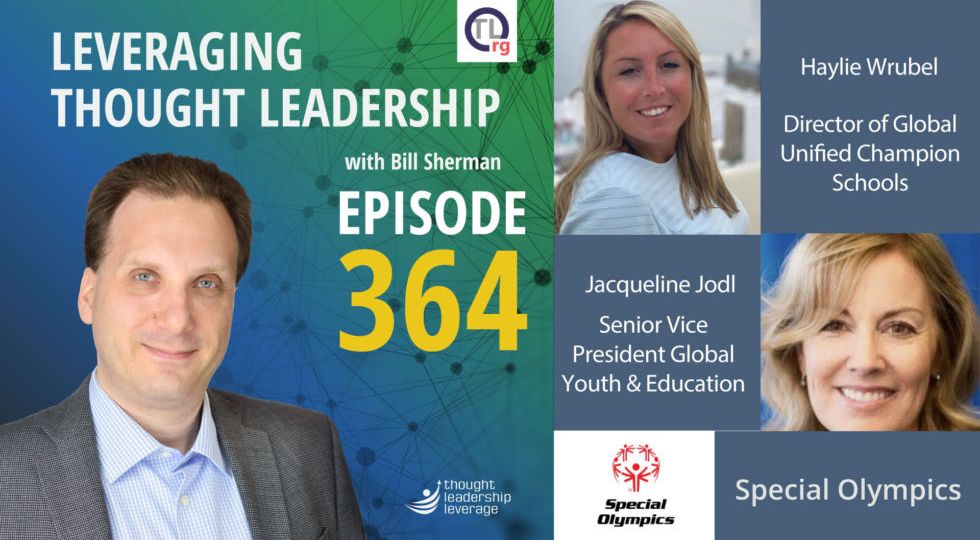
Using Thought Leadership to gain allies and ambassadors for a global movement.
An interview with Jacqueline Jodl and Haylie Wrubel about using thought leadership to create a worldwide movement, gain allies, and create ambassadors.
How do you grow a movement from a backyard enterprise to a global mission reaching hundreds of thousands of people each day?
Today, we discuss the ongoing 50+-year mission of the Special Olympics with Jacqueline Jodl, Senior Vice President of Global Youth & Education and Haylie Wrubel, Director of Global Unified Champion Schools.
We start our conversation by discussing the way Special Olympics is bringing together people with and without intellectual disabilities to share experiences and build a common language. Their goal: create an understanding of the value of social and academic inclusion. One of the methods by which they achieve this goal is through creating Unified Champion Schools, a worldwide network of schools with inclusive programs, both sport and academic. Together, they bring people with differences together to build friendship and create leadership.
Methods and Storytelling
Taking a grassroots idea to scale is never easy, but is exactly what the Special Olympics has done. Jackie and Haylie share some of the methods they’ve used to create an impact on a global level. We discover how thought leadership resides at the intersection of research, policy, and practice , and how creating that thought leadership is at the heart of their work. In addition, we learn how a focus on storytelling and sharing the real-life stories of individuals and schools can resonate with policymakers and move the needle on a global scale.
In addition, Jackie and Haylie discuss how they go about cultivating allies and ambassadors for their movement. They explain why you shouldn’t be too narrow while identifying allies, how you can co-create content, and how you can turn followers into allies and ambassadors.
This is a fascinating look at how the Special Olympics has grown, and continues to grow, across the world – creating a positive social impact for everyone.
Three Key Takeaways:
- Scaling thought leadership can be done by using a policy that works in one area and modifying it to suit another.
- Thought leadership is more authentic when you give voice to those it is intended to impact.
- Creating thought leadership for a global movement involves having an infrastructure with staff and volunteers in the communities they are intending to work with.
Join the Organizational Thought Leadership Newsletter to learn more about expanding thought leadership within your organization! This monthly newsletter is full of practical information, advice, and ideas to help you reach your organization’s thought leadership goals.
And if you need help scaling organizational thought leadership, contact Thought Leadership Leverage!



